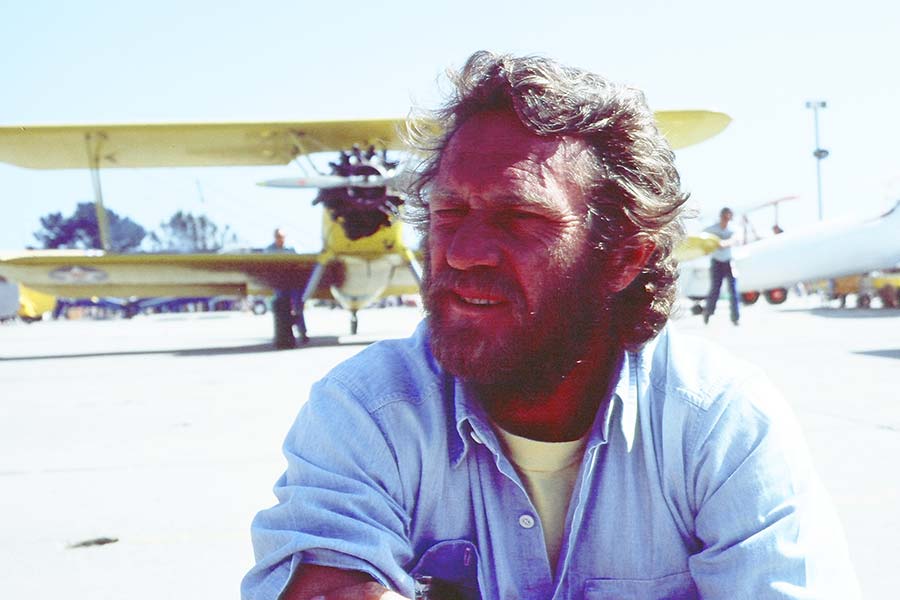Faith Guides Steve McQueen Through Mesothelioma Battle

Nicknamed “The King of Cool,” actor Steve McQueen seemed to have it all.
Known for tough guy roles in “Bullitt,” “The Cincinnati Kid” and “The Towering Inferno,” McQueen became the highest-paid movie star in the world in 1974. He received an Academy Award nomination for his role in “The Sand Pebbles” and starred alongside all-star casts in “The Great Escape” and “The Magnificent Seven.”
But off screen, McQueen’s life was just as fast as the renegade characters he played in films. Heavy drinking, prolific substance abuse and a publicized affair sent his life in a downward spiral as he coped with a troubled childhood and the dark side of fame.
However, all that changed later in life when he searched for meaning, truth and significance before his death from mesothelioma in 1980. McQueen developed a strong faith and reportedly died clutching the personal Bible of Christian evangelist Billy Graham.
A new documentary, “Steve McQueen: American Icon,” which is set to play in select theaters nationwide on Sept. 28, follows the previously untold story of McQueen’s final chapter.
The film is a joint venture between Erwin Brothers Entertainment and pastor Greg Laurie of Harvest Christian Fellowship, one of the largest churches in the U.S.
Flying Leads to Redemption
The film includes an in-depth interview with McQueen’s widow, Barbara Minty McQueen, as she reveals candid photographs of the actor in his final years.
McQueen was diagnosed with pleural mesothelioma on Dec. 22, 1979, and died of cardiac arrest from widespread metastasis less than a year later at age 50. His cancer was traced to asbestos exposure from his time in the military prior to his acting career. McQueen recalled stripping asbestos off pipes in a ship’s engine room during his stint as a U.S. Marine.
The actor also worked around sound stage insulation and wore fireproof racing suits that likely contained asbestos.
Barbara McQueen has spent the last several years fighting against the asbestos industry and working with advocacy groups such as the Asbestos Disease Awareness Organization (ADAO).
An asbestos awareness PSA featuring Barbara McQueen and ADAO president and co-founder Linda Reinstein will air ahead of the premiere of “Steve McQueen: American Icon.”
A taped interview Steve McQueen gave two weeks before his death is included in the documentary. Although a cancer diagnosis can be devastating and lead to changes in faith, the film explains McQueen became a Christian before learning he had cancer.
“He became a Christian when he was at the top of his game,” Laurie told Fox News Radio. “Sadly he found out he had cancer, but now he also had the courage and faith to fight it on a level he would not have had had he not believed in Jesus.”
The documentary centers on McQueen’s interest in flying late in life and how he found clarity in the skies of Southern California while learning to fly a single-engine, yellow biplane. As his battle with cancer was coming to a close in 1980, McQueen reveals in the never-before-released audio recording that his newfound faith was a cure and that he wants people to know about his relationship with God.
Laurie Finds Connection to McQueen
A longtime fan of McQueen, Laurie didn’t realize the two had so much in common until he began writing his book “Steve McQueen: The Salvation of an American Icon.”
Laurie learned the two had very similar childhoods, with absent fathers and alcoholic mothers. Both lived with abusive stepfathers, ended up living with extended family members and were later sent to reform schools.
Now the senior pastor of Harvest, with campuses in California and Hawaii, Laurie is inspired by McQueen’s story and the strong faith the actor found before his death.
In the documentary, Laurie travels around in his mint replica of McQueen’s 1968 Ford Mustang from the movie “Bullitt.” In addition to Barbara McQueen, interviews include Academy Award-winning actor Mel Gibson, stuntman Stan Barrett and actors Barbara Leigh and Mel Novak.
Gary Sinise, the Oscar-nominated actor from “Forrest Gump,” narrates the film, which comes to theaters through Fathom Events, a distribution company known for bringing live concerts and other events to movie screens.